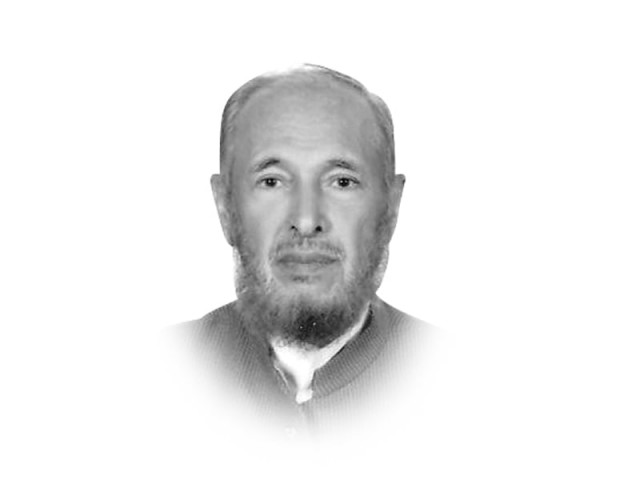Illegal annexation day
Perhaps the next six months would provide insights into how the evolving dynamics play out

The BJP government in India, espousing a Hindutva ideology, resorted to an action on August 5, 2019 that amounted to an onslaught on democracy, pluralism and human rights. Perhaps this draconian action in defiance of the collective will of the Kashmiri people would be remembered as the most outrageous anti-democracy action for a country that prided itself for promoting democracy in Asia.
It was not only shutting doors on all legitimate aspirations of the long-suppressed people of Jammu and Kashmir. Abrogation of Article 370 of the Constitution was the most ominous and brazen act of dismantling the identity of millions of Kashmiris.
Even considering the extreme right-wing ideology of BJP and its ideological godfather, the RSS, few expected New Delhi to go on such an offensive to suppress a rebellion in the valley. Denying the right of self-determination, as guaranteed under the UN resolutions and by India itself, was one thing; destroying the identity of an ethnicity and a state was “the most unkind cut of all”.
The obvious rationale for this action was to silence the voices of those demanding complete autonomy for long. Perhaps it was assumed that with such a sweeping action the valley’s people would be thrown on the defensive and gradually the movement for independence or complete autonomy would fade out. Another reason for the action was the belief that with more drastic security measures in force, it would be difficult for any “external” assistance to reach the ranks of those fighting the state. On its own the movement would not be in a position to confront the strong Indian military deployed there. New Delhi also believed the mass arrests, detentions of leaders, activists of different pro-liberation groups would help demotivate the rank and file members of militant outfits operating in the area.
India has taken the plunge. The August 5 action was followed by other measures. Internet access was banned. Strict press censorship imposed. Both print and the electronic media have been subjected to severe and unprecedented restrictions. Media outlets have been brought under government control. Thousands detained. All public meetings, processions are banned. The main towns have been placed under curfew indefinitely.
Not only the free movement of people has been banned, all educational institutions have suffered long closures along with the area’s economy. Farm produce cannot be brought to the markets. Farmers have suffered huge losses. Orchards have been stunted for want of water. Tourism has also suffered as tourists are no longer visiting.
A gloom has descended on the valley and it appears this state of total isolation will continue. How have the people responded to Modi’s gamble?
People’s reaction would not be known as long as restrictions are in place. The test would come when such restrictions are lifted. The reaction would also depend on whether the resistance stays united or falls victim to individual’s whims. There would be an effort to divide the resistance. This may, to an extent, succeed. But any group seeking to highlight the injustices done to the people after the annexation and confronts the government by passive and active opposition, would eventually emerge as the focal point of the campaign for more autonomy or independence. This would be a long battle but would continue despite setbacks, if the past is any guide.
It would also depend to what extent other political parties in India align with the demand for restoration of the separate status of Kashmir. Eyes will be on Congress. If Congress remains lukewarm in its support for the Kashmiris, as it has in the wake of August 5, the people of the valley would be left to fight their own battle — not a good omen for the struggle for autonomy.
Pakistan can continue raising its voice and drawing attention to the plight of Kashmiris. It would only have limited impact on India. Because considering its size and its relevance, few countries would lend their full support for the Kashmiris at the risk of offending India.
Two factors would have a decisive impact on the outcome of the struggle: the unity in the ranks of the Hurriyat movement and the extent of political support it would receive from parties other than the BJP. Perhaps the next six months would provide insights into how the evolving dynamics play out.
Published in The Express Tribune, August 10th, 2020.
Like Opinion & Editorial on Facebook, follow @ETOpEd on Twitter to receive all updates on all our daily pieces.















COMMENTS
Comments are moderated and generally will be posted if they are on-topic and not abusive.
For more information, please see our Comments FAQ